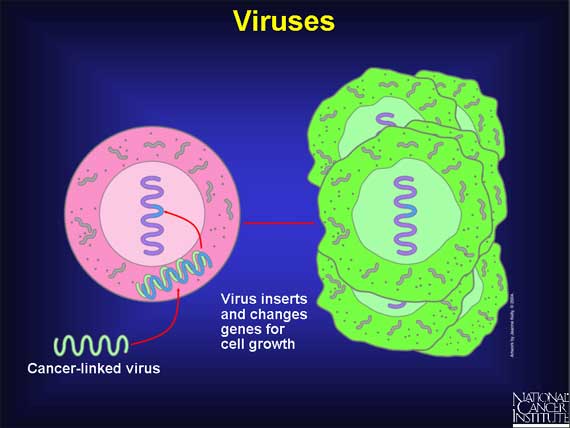|
In addition to chemicals and radiation, a few viruses also can trigger the development of cancer. In general, viruses are small infectious agents that cannot reproduce on their own, but instead enter into living cells and cause the infected cell to produce more copies of the virus. Like cells, viruses store their genetic instructions in large molecules called nucleic acids. In the case of cancer viruses, some of the viral genetic information carried in these nucleic acids is inserted into the chromosomes of the infected cell, and this causes the cell to become malignant.

< Previous | Index | Next Slide > |